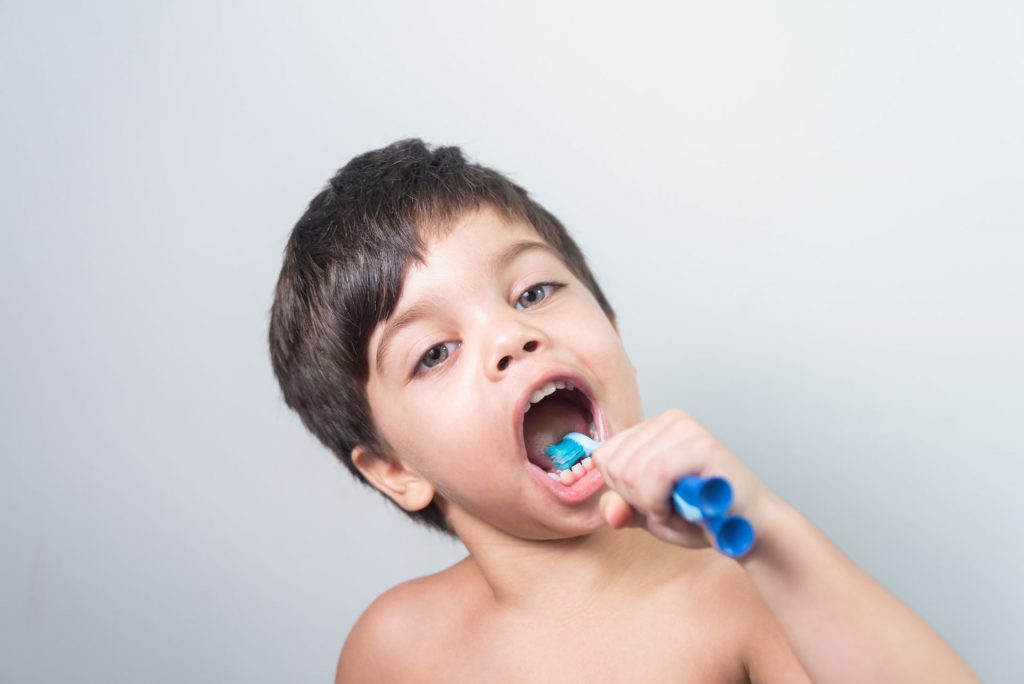
Nurturing Healthy Gums in Kids: A Comprehensive Guide
Introduction
Good oral health is essential for children’s overall well-being. While we often focus on teaching them proper toothbrushing techniques and cavity prevention, we must not overlook the importance of healthy gums. Strong and vibrant gums provide a foundation for lifelong oral health. In this article, we will explore the significance of healthy gums in children and provide practical tips for parents to ensure their little ones maintain optimal gum health.
Understanding Gum Health
Gums, also known as gingiva, play a crucial role in maintaining oral health. They surround and support the teeth, protecting them from harmful bacteria and keeping them firmly in place. Healthy gums are pink, firm, and resilient, while unhealthy gums may appear red, swollen, or bleed easily. Maintaining healthy gums is essential to prevent gum diseases like gingivitis and periodontitis.
Promoting Healthy Gums in Kids
- Establish a Consistent Oral Hygiene Routine: Teach your child the importance of oral hygiene by making brushing and flossing a part of their daily routine. Ensure they brush their teeth twice a day using a soft-bristled toothbrush and a fluoride toothpaste appropriate for their age. Encourage them to floss daily to remove plaque and food particles from between their teeth and along the gumline.
- Lead by Example: Children often imitate their parents’ behavior, so it’s crucial to showcase good oral hygiene habits yourself. Brush and floss together as a family to create a positive and engaging experience. This not only encourages your child to maintain good oral health but also strengthens the bond between you.
- Provide a Balanced Diet: A nutritious diet rich in fruits, vegetables, whole grains, and lean proteins contributes to healthy gums. Limit sugary snacks and beverages as they can lead to dental decay and gum problems. Encourage your child to drink water and include foods that stimulate saliva production, such as crunchy fruits and vegetables.
- Regular Dental Check-ups: Schedule regular dental visits for your child, starting from their first birthday or when their first tooth erupts. Regular check-ups allow the dentist to monitor gum health, detect early signs of any issues, and provide preventive treatments or interventions when necessary.
- Emphasize Proper Technique: Teach your child the correct technique for brushing and flossing their teeth. Use small, circular motions along the gumline and ensure they reach all the teeth, including the back molars. Proper technique helps remove plaque and prevent gum disease.
- Protect Teeth during Sports: If your child participates in contact sports or activities that pose a risk of dental injuries, encourage them to wear a mouthguard. A mouthguard provides a protective barrier and reduces the risk of gum and tooth damage.

Common Gum Issues in Children
Children may encounter specific gum issues that require attention and care. Some common gum problems include:
- Teething Troubles: As your child’s teeth erupt, they may experience discomfort and irritability. Gently massaging their gums with a clean finger or a teething ring can provide relief. Avoid applying teething gels containing benzocaine without consulting a healthcare professional.
- Gingivitis: Gingivitis, characterized by red, swollen gums that bleed easily, can affect children too. It is often caused by poor oral hygiene. Encourage your child to brush and floss diligently and consider consulting a dentist for further guidance.
- Thumb-Sucking and Pacifier Use: Thumb-sucking and pacifier use are common habits among young children. However, prolonged and intense sucking can affect the alignment of teeth and the development of the jaw, leading to potential gum problems. Encourage your child to gradually stop these habits as they grow older to promote healthy gum and dental development.
- Preventing Gum Injuries: Children are active and prone to accidents that can result in gum injuries. Teach them to be cautious while playing, especially on hard surfaces or during activities that involve running or jumping. In case of a gum injury, rinse the mouth gently with water and apply a clean cold compress to reduce swelling. Seek dental assistance if the injury is severe or persists.
- Addressing Bruxism (Teeth Grinding): Bruxism, or teeth grinding, is a common habit in children, especially during sleep. It can exert pressure on the gums and lead to gum recession or other oral health issues. If you suspect your child is grinding their teeth, consult their dentist. The dentist may recommend a nightguard or suggest strategies to alleviate stress or anxiety that may be causing the grinding.
- Encouraging Proper Water Consumption: Drinking an adequate amount of water is crucial for maintaining overall oral health, including healthy gums. Water helps rinse away food particles, stimulates saliva production, and hydrates the gums. Encourage your child to drink water throughout the day, especially after meals or snacks.
- Educating about Tobacco and Smoking: Discuss the harmful effects of tobacco and smoking with your child as they grow older. Make them aware that smoking can lead to gum diseases, tooth loss, and other oral health problems. By instilling this knowledge early on, you can help them make informed decisions and avoid habits that can harm their gum health.
- Managing Stress Levels: Stress can impact oral health, including gum health. Teach your child healthy stress management techniques, such as deep breathing exercises, physical activity, or engaging in hobbies they enjoy. By promoting emotional well-being, you contribute to their overall gum health.
| Recommendation | Explanation |
|---|---|
| Establish a consistent oral hygiene routine | Teach children to brush their teeth twice a day and encourage daily flossing to remove plaque and maintain gum health. |
| Provide age-appropriate toothbrushes and toothpaste | Use soft-bristled toothbrushes and fluoride toothpaste suitable for children’s age to ensure effective cleaning. |
| Encourage proper brushing techniques | Teach children to brush in small, circular motions along the gumline to remove plaque and prevent gum problems. |
| Promote a balanced diet | Encourage children to consume nutritious foods rich in fruits, vegetables, whole grains, and lean proteins for gum health. |
| Limit sugary snacks and beverages | Reduce the consumption of sugary foods and drinks that can contribute to tooth decay and gum issues. |
| Schedule regular dental check-ups | Ensure children have regular dental visits to monitor gum health, detect early signs of issues, and receive preventive treatments. |
| Teach children the importance of avoiding tobacco and smoking | Educate children about the harmful effects of tobacco and smoking on gum health and overall oral well-being. |
| Encourage drinking plenty of water | Promote regular water consumption to keep gums hydrated, stimulate saliva production, and flush away food debris. |
| Address thumb-sucking and pacifier use | Help children gradually stop these habits as they can affect gum and dental development. |
| Promote physical activity and stress management | Engage children in physical activities and teach stress management techniques to reduce stress and promote gum health. |
Conclusion
Healthy gums are vital for maintaining a child’s overall oral health. By implementing consistent oral hygiene practices, promoting a balanced diet, and scheduling regular dental check-ups, parents can help ensure their children have healthy gums. Additionally, being aware of common gum issues in children and taking appropriate measures can contribute to their overall gum health and well-being.
Also, with proper care and attention, parents can nurture healthy gums in their children. By implementing consistent oral hygiene practices, providing a balanced diet, promoting regular dental check-ups, and addressing specific gum issues, parents can set their children on the path to a lifetime of strong and vibrant gums. Remember, healthy gums are not only essential for oral health but also contribute to overall well-being and confidence as children grow and develop.
If you have more specific questions or concerns, remember that you can contact us and find us at Petit Smiles in Coral Gables and Doral, Miami.


